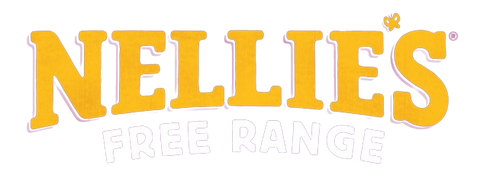
It was just two years ago that we thought we might never see the day.
Only about 10% of eggs produced were cage free or free range. The rest came from Dickensian factory farms with millions of birds on site, all mercilessly crammed into tiny cages.
Farms like Nellie's were sounding the alarm, loyal customers like you were heeding the call, and there were even a few vague pronouncements to convert to cage free... eventually, by big companies like Costco. But that was about it. It still seemed a long way off that we would have more than a fraction of our eggs coming from cage free farms.
Then came the McDonald's announcement that they would convert over the next decade. A few of their fast food competitors matched that, and then suddenly it seemed every major restaurant chain in the country made their own announcement. Yet, because eggs were only a small part of their menus in most cases, the vast majority of caged production was still going to feed the much larger grocery retailer part of the market for the foreseeable future. So real progress, but still largely the status quo.
And then to many people's surprise, Albertsons, the second largest grocery company in the U.S. (2200 Safeway, Albertsons, Shaw's, Pavilions, Star, and Vons stores) announced they would go 100% Cage Free within 10 years. The very next day, Kroger, the nation's largest grocer (3400 Ralphs, Dillon's, Fry's Food Stores, Fred Meyer, Harris Teeter, Smith's Food and Drug, and QFC stores) also announced. Soon after, Ahold (Stop & Shop, Giant Eagle) followed. Add Costco, Trader Joes, BJ's, Target and seemingly more every day – it is truly a tipping point in the industry. It will take a few years to get there, but there is no turning back now.
We are positively thrilled by this! It is vindication of years of hard work and advocacy by those supporting humane farming practices.
Of course, as we have cautioned before, this does not mean that the folks who used to produce millions of eggs a day on cruel industrial-scale farms have turned over a new leaf. It just means they have yielded to the marketplace to no longer produce in the cruelest possible way. They are now busy tearing out their battery cages and replacing them in buildings of the same scale with huge metal enclosures called combi-aviary systems. That allows them to keep the hens in a big cage (albeit a cage that at least lets hens move from place to place vs. the old tight confinement) as well as occasionally open small doors near the bottom that provide access to the floor level – but significantly not to the outside. Birds labeled cage free, do not get to go outside as a rule. And there is no real oversight that the cages even have to be opened at the bottom on any regular basis. There is no overcrowding standard. And there is no one allowed into these facilities to check if anything is really humane about them.
Again, we salute this significant step forward for the welfare of hens. But most consumers would still be alarmed at the scale of these places and the density of hens crammed inside. Some facilities will have between 500,000 and a million birds in a single "barn." And they will continue to have to feed the hens antibiotics to ward off the spread of disease that is common to overcrowded agriculture operations.
At Nellie's, we will continue to produce ethical Free Range Eggs on small, independent farms. That means we go the extra mile in every area of animal welfare, food safety, and the welfare of our farmers. Nellie's is Certified Humane, which means we get inspected by the most respected third party non-profit certifier (Humane Farm Animal Care) every year. It absolutely costs more to farm this way. And our loyal customers have always believed it to be worth it. Thank you.













